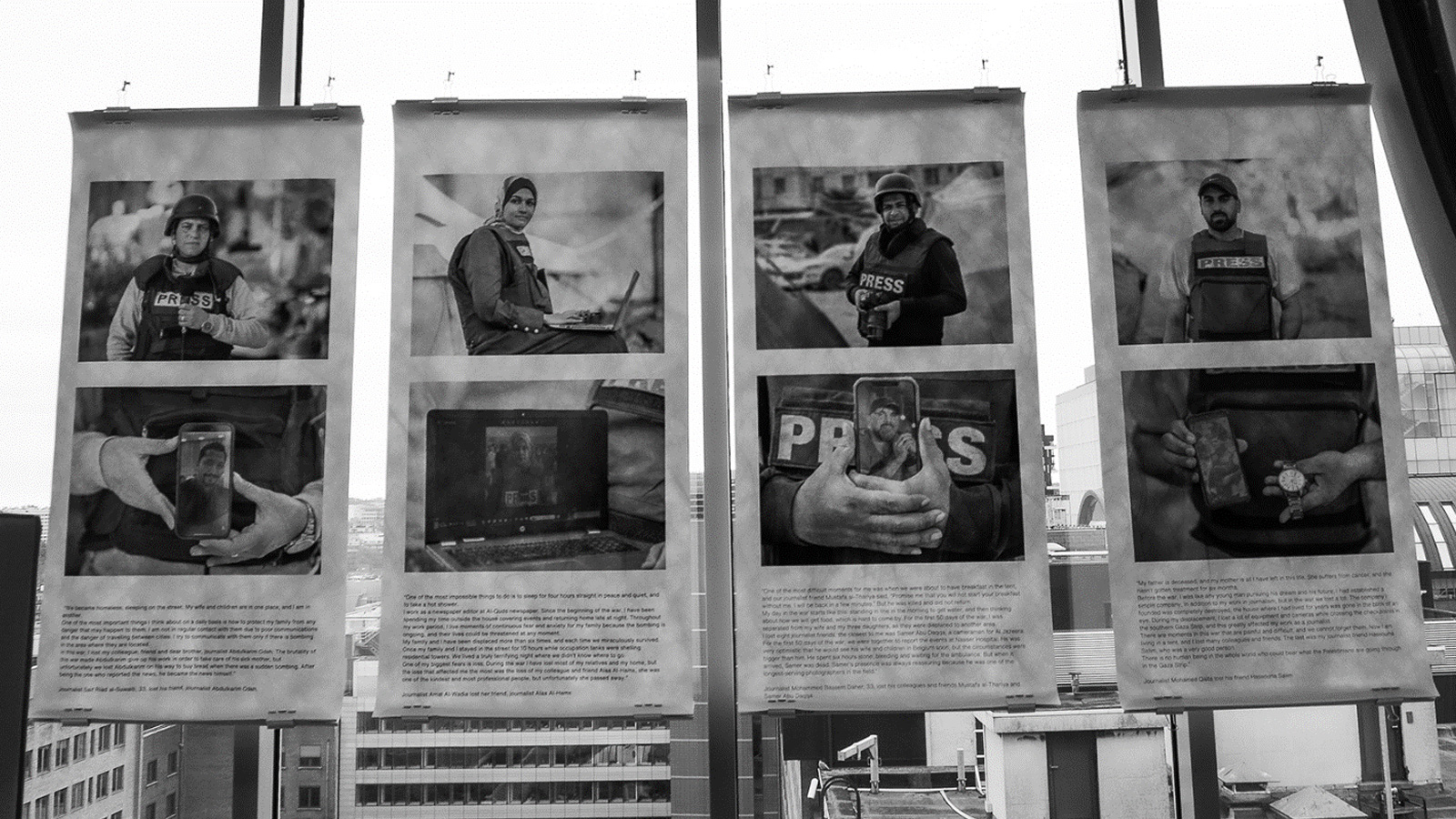
“After 7 October, we were looking for a way to keep hope for Palestinians alive. We wanted to show Palestinians as normal people who want to live a normal life, who have wishes and hopes” explains photographer and activist Mohamed Badarne, one of the founders of the digital platform Untold Palestine.
It was at the beginning of the current? war in Gaza that Untold Palestine started the social media campaign “We are not numbers”. This campaign allows friends and families to tell the stories of their relatives and friends who have been killed. It is a way to keep their memories alive. They post pictures of their happiest moments and their achievements.
“We didn’t want to show pictures of atrocities, there are plenty of media outlets who do that already,” says Mohamed. “We want people to show solidarity with Palestinians when they’re alive, not just when they die.”
Challenging mainstream narratives about Palestine and Palestinians was the main idea behind Untold Palestine’s establishment in 2019 by a collective of Palestinian photojournalists, storytellers, and photographers.
“Our story is usually told by mainstream media, not by ourselves,” explains Mohamed, “they propagate stereotypes about us. Everything about our lives is politicised.”
Before 7 October, Untold Palestine published stories about ordinary Palestinians, living in Gaza, the West Bank or from the diaspora in neighbouring countries. They profiled painters, musicians and artisans. They described the experiences of Palestinians from the West Bank seeing the sea for the first time, travelling through multiple checkpoints to get there. They told other stories about Palestinian elders who survived the Nakba in 1948.
After the war began, the Untold Palestine team, split between Gaza, the West Bank and Germany, was initially paralysed.
“For the first ten days, we didn’t know how we could speak about hope under the bombs,” recalls Mohamed, “then we started posting stories from our archive, and people reshared them, even though they were not about current events. This gave us the inspiration to start the ‘We are not numbers’ campaign.”
Soon enough, Untold Palestine’s inbox was flooded with pictures of the victims of the war, sent by their family members whenever they had internet available, eager to tell their stories so they would be remembered.
Mohamed admits that it is psychologically tough work for the team to select pictures for the ‘We are not numbers’. One team member learned that a friend had been killed from one such message. However, the team strongly believe that this material is an important archive for the future.
The campaign has already gone viral beyond Palestine, with one of their stories viewed more than a million times, and many of their photographs and videos picked up by international media, from Al Jazeera to the BBC. 30 per cent of the media’s followers now come from outside the Arab world. Mohamed, who is based in Germany, has also seen Untold Palestine’s material used in protests there.
Unfortunately, the popularity of the campaign exposes the team to online abuse, with Mohamed admitting that they frequently receive racist comments on their platform.
“But what is special about Untold Palestine is the ‘soft’ way we approach the conflict. We tell human stories, outside politics, which protects us from harassment to an extent, and also prevents our accounts from being shadow-banned,” he says.
Before the war, Untold Palestine conducted regular workshops for aspiring Palestinian photojournalists. While the war has made these activities impossible, they are still training team members and other reporters online, teaching them how to tell a story.
“Not a day passes without a new photojournalist from Gaza telling us that they want to work with us, and learn from us,” says Mohamed.
He stresses the importance of learning to cover a war while maintaining high ethical standards: “We reject sensationalism in journalism - we want to tell stories full of hope, even if they are full of pain, but always with respect for the people behind them.”
Covering the war is extremely stressful for the team, and those based in Gaza have to constantly think about their physical safety and that of their families.
Mohamed says that the team see no choice but to work. “Sometimes I tell my team to take some rest and they all tell me ‘If I stop working, I will go crazy,’” he says.
“What keeps us going is thinking about the future, thinking that we’re paving the way for a new generation of journalists telling the Palestinian story 20 years from now. We get so much power from the people in Gaza. Each day they keep going and they keep sending us material.”
He admits he is disappointed by the way big Western media treats Palestinian journalists, seeing them as a means to receive first-hand material from Gaza, with no thought for their safety, as would be the case for European or American journalists.
“There is an issue of colonialism. They take material from us, but they don’t consider us as professionals. We believe this is our chance to change this narrative, to tell our own stories and to free our images from this colonialist way of seeing us,” he says.
This article reflects the views of the grantees featured and does not necessarily represent the official opinion of the EED.